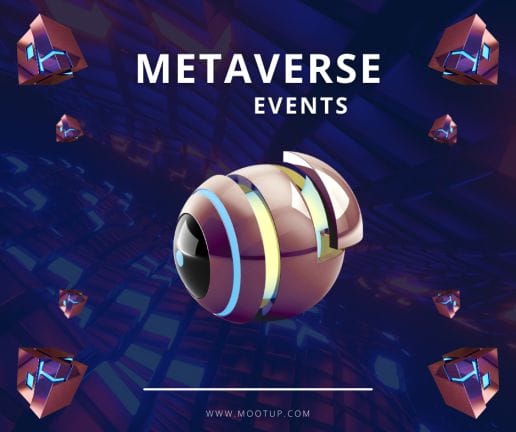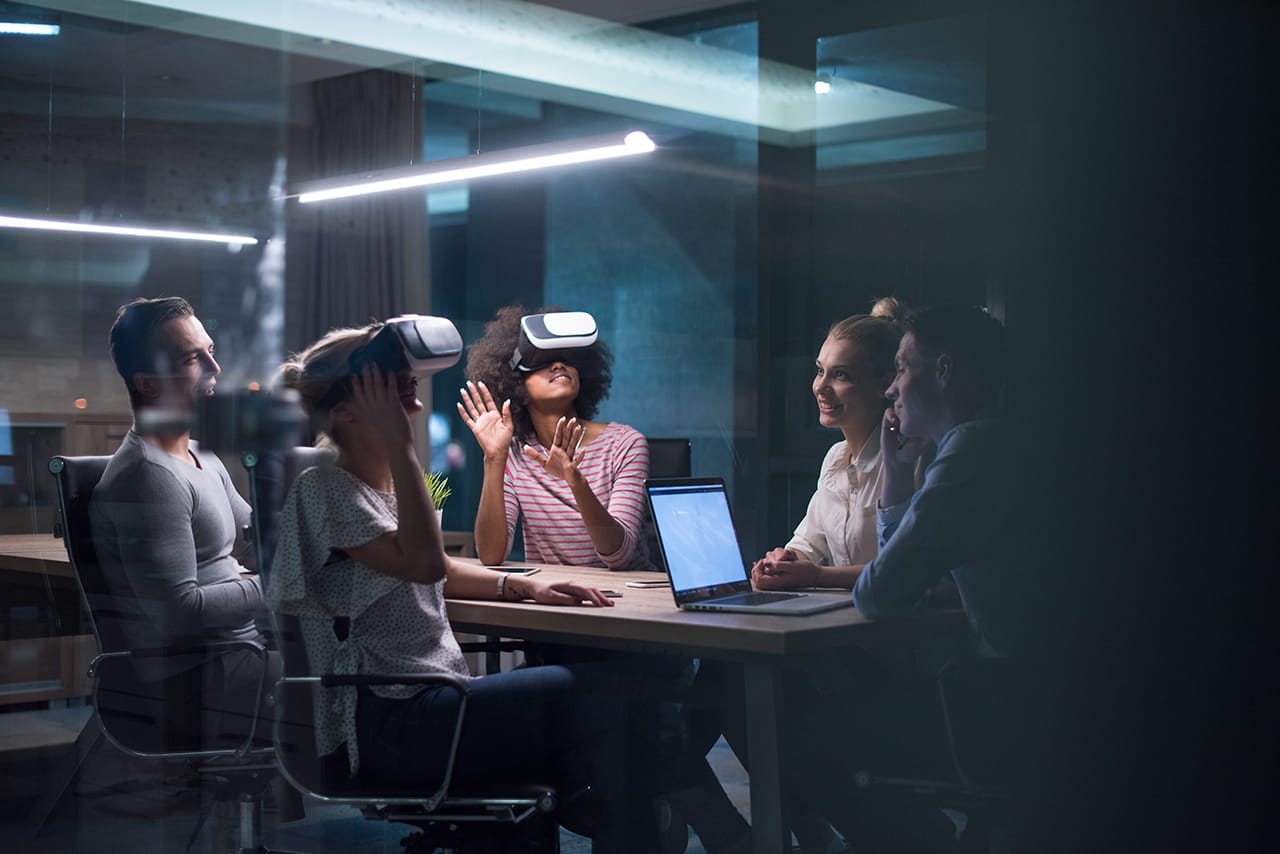The world of Web 3, the metaverse, and the new digital economy is rapidly evolving. As businesses seek to capitalize on this revolutionary technology, they must be prepared for a future where immersive virtual experiences are commonplace. To capitalize on this technology, businesses must understand the necessary technologies to access the metaverse and how they can apply it to their business. We’ll explore these topics in our blog post about Web 3 the metaverse, and the new digital economy – from understanding key concepts like Web 3 to strategizing ways businesses can prepare for success.
Table of Contents:
- What is the Metaverse?
- How Can Businesses Leverage the Metaverse?
- What Technologies are Needed to Access the Metaverse?
- What is Web 3 and How Does it Impact the Metaverse?
- How Can Businesses Prepare for a Future in Web 3 and The Metaverse?
- FAQs in Relation to Web 3 the Metaverse and the New Digital Economy
- Conclusion
What is the Metaverse?
The metaverse is a shared virtual space where users can interact with each other and digital objects. A 3D universe is akin to the real one but with amplified potentials for communication, partnership, pleasure, trade, teaching and beyond. The term “metaverse” was first coined in Neal Stephenson’s 1992 science fiction novel Snow Crash. web 3 the metaverse and the new digital economy.
The metaverse is an interconnected system of virtual realities, enabling users to explore a simulated 3D world while communicating and interacting with others and digital objects. The metaverse combines aspects from physical and virtual realms, such as avatars and geography, to create an immersive experience. It enables people to meet virtually in ways impossible in the physical world.
The metaverse offers numerous advantages, such as increased accessibility for those unable to attend in-person events; immersive learning experiences; enhanced communication between individuals; novel opportunities for socializing; and new pathways for marketing campaigns or product launches. Moreover, businesses can use it to establish virtual stores or offices, allowing them to tap into customers worldwide without sinking funds into costly infrastructure projects.
The Metaverse is a groundbreaking technology that can transform how firms collaborate with their patrons, cooperate within themselves, and educate personnel. By leveraging this new digital economy, businesses can take advantage of immersive learning and training opportunities as well as marketing and advertising opportunities for increased success in the future.
Key Takeaway: The metaverse is a rapidly evolving digital space that provides users unprecedented access, communication, and collaboration. It offers businesses the potential to reach new markets at a fraction of the cost by leveraging virtual stores or offices, immersive learning experiences, and novel opportunities for marketing campaigns. Companies can remain at the forefront of our increasingly interconnected world by capitalizing on this burgeoning tech.
How Can Businesses Leverage the Metaverse?
Businesses are increasingly leveraging the metaverse to create immersive learning and training experiences. By utilizing virtual worlds, businesses can provide employees with an engaging environment for education and development. These environments can be tailored to meet specific objectives, such as developing skills in customer service or providing instruction on a new product launch. For example, companies like IBM have created virtual simulations that allow employees to practice customer service interactions in a safe and controlled environment before interacting with real customers.
Marketing and advertising campaigns can also benefit from the metaverse’s ability to create unique user interactive experiences. Companies use virtual worlds to host events such as live concerts or conferences, allowing them to reach larger audiences than ever while creating memorable experiences that drive brand recognition and loyalty. Businesses are capitalizing on AR tech within the metaverse by fusing it into their promotional efforts, allowing them to simultaneously engage customers through physical and digital means.
Businesses can leverage the metaverse to create immersive learning and training opportunities, marketing campaigns, and networking connections. It is essential to be aware of the technologies necessary for gaining access to the metaverse to guarantee a successful move into web 3.0.
Key Takeaway: Businesses are leveraging the metaverse to create immersive learning and marketing experiences, using virtual worlds for training, events such as concerts or conferences, and augmented reality technology. By utilizing these tools innovatively, companies can engage customers on multiple levels while providing employees with a safe environment for development.
What Technologies are Needed to Access the Metaverse?
Accessing the metaverse requires both hardware and software components. To start, you’ll need a device capable of running virtual reality (VR) or augmented reality (AR) applications. This could be a smartphone, tablet, laptop, or dedicated VR headset like the Oculus Quest 2. For optimal performance, your device must meet the necessary technical specifications.
Hardware-wise, you’ll also need an input device, such as a game controller or motion controller, for more immersive experiences. If using an AR application on a mobile device, you may want to consider investing in external accessories such as lenses and stands to improve the experience further.
To access a metaverse platform, users must typically download the corresponding app from an app store or website before proceeding. Some platforms may also require additional plugins or extensions depending on what type of content is being accessed within the platform itself. It’s important to ensure that all necessary downloads are completed before entering any virtual environment to avoid unexpected technical issues during use.
To access the metaverse, businesses must know the hardware and software requirements and security considerations. With this knowledge, they can confidently explore Web 3 and its impact on the digital economy.
Key Takeaway: To access the metaverse, you need a device that supports VRAR apps and an input device. You’ll also have to download any necessary software and plugins from app stores or websites before entering your virtual environment. Ensure all prerequisites are met before entering the metaverse.
What is Web 3 and How Does it Impact the Metaverse?
The latest version of the internet, Web 3, is a decentralized network of computers that has been referred to as the “third generation” or “semantic web” and holds the potential to revolutionize online interactions. It has been referred to as the “third generation” or “semantic web” and promises to revolutionize how we access information and interact online. Web 3 will enable a completely novel digital economy that is more reliable, confidential, and productive than ever.

Definition of Web 3 and its Impact on the Digital Economy: Web 3 is based on blockchain technology which uses distributed ledger systems instead of centralized servers for data storage. This increases user transactions’ security, privacy, trustworthiness, transparency, scalability, and efficiency. The result is an entirely new digital economy that could drastically reduce costs associated with traditional financial services, such as banking fees or transaction costs, while increasing user control over their data.
Web 3 and the metaverse are transforming the digital economy, creating opportunities for businesses to innovate and grow. Businesses must put money into tech and devise plans to exploit this new economic realm to benefit from these recent advances.
Key Takeaway: Web 3 is a revolutionary step forward in the digital economy, increasing users’ security, privacy, and trustworthiness through blockchain technology. It promises to be more efficient than ever by reducing costs associated with traditional financial services while giving people full control over their data.
How Can Businesses Prepare for a Future in Web 3 and The Metaverse?
Investing in technology is essential as businesses prepare for a future in web 3 and the metaverse. For success, firms must secure the correct apparatus and structures to exploit fresh openings. To guarantee success, businesses must have the right technology, such as AR and VR headsets and other tools to use new possibilities. Businesses require software enabling them to capitalize on the digital realm, including cloud-based systems, blockchain networks, AI and machine learning tools.
Developing strategies to leverage the new digital economy is also critical for success. Companies should consider using emerging technologies like AR/VR or AI-driven automation to create unique customer experiences or optimize operations internally. They should also explore ways to capitalize on user-generated data within their metaverse environment—for example by using analytics solutions or monetizing user content through advertising campaigns.
Key Takeaway: Businesses need to be ready for the new era of web 3 and the metaverse by investing in cutting-edge technology such as ARVR headsets, cloud computing platforms, blockchain networks, AI algorithms etc. Additionally, they must devise strategies to take advantage of opportunities presented by this digital economy – from creating immersive experiences using data analytics to monetizing content through advertising campaigns.
FAQs in Relation to Web 3 the Metaverse and the New Digital Economy
What are Web3 and metaverse?
Web3 and metaverse are terms used to describe the next generation of the internet. Web3 is an improved web form with decentralization, security and blockchain-based capabilities. The Metaverse refers to a virtual world in which people can interact with each other through avatars or digital representations of themselves. It will be available from anywhere on the planet, allowing users to communicate and cooperate in real time over great distances. With its open-source platform, it promises unprecedented levels of creativity and collaboration between individuals as well as businesses who want to create their own unique experiences within this new reality.
Is metaverse a digital economy?
No, the metaverse is not a digital economy. The metaverse refers to an interconnected virtual universe of multiple virtual worlds and experiences that can be accessed anywhere. The metaverse is a hub for imagination, cooperation, amusement, education and more. While economic aspects are associated with the metaverse, such as buying/selling items or services within its boundaries, it does not constitute a full-fledged digital economy like other platforms.
What is the web 3.0 economy?
The web 3.0 economy is a burgeoning digital realm that uses blockchain technology to establish an open-source, decentralized platform for data transfer and trade. It promises more secure and transparent online interactions while allowing users to retain control over their personal information.
The Web 3.0 economy facilitates novel approaches to commerce, like tokenization, automated contracts, distributed applications (dApps), non-fungible tokens (NFTs), and other inventive services that can revolutionize how we interact digitally.
How will Web 3.0 transform the digital era?
Web 3.0 will revolutionize the digital era by introducing a new layer of decentralization and trust to the internet. Distributed ledger tech enables the storage and sharing of data securely between parties without needing a central authority or go-between.
Web 3.0 also offers increased privacy, scalability, and interoperability across different networks and improved user experience due to faster speeds, lower latency times, better security protocols, smarter contracts and more intelligent applications that can be used in various industries such as finance and healthcare. These advancements will drive innovation while creating new opportunities for businesses worldwide.
Conclusion
As organizations contemplate the possibilities of web 3, the executives need to recognize how these advances can be utilized to prepare for web 3 the metaverse and the new digital economy in the years ahead. By leveraging Hyperspace’s no-code platform, businesses can access an intuitive drag-and-drop interface to create and customize virtual worlds with customizable templates. With this powerful tool, businesses can unlock new opportunities within the metaverse while staying ahead of emerging trends in web 3 technology.
Futureproof your Metaverse with our browser-based platform that enables access on all smartphones, tablets, laptops, and VR/AR headsets, without requiring downloads or software installation. Create your first virtual world with Hyperspace and experience the potential of web 3.0, the metaverse, and a new digital economy! Join us today to unlock immersive learning, training, and marketing opportunities for businesses everywhere.





